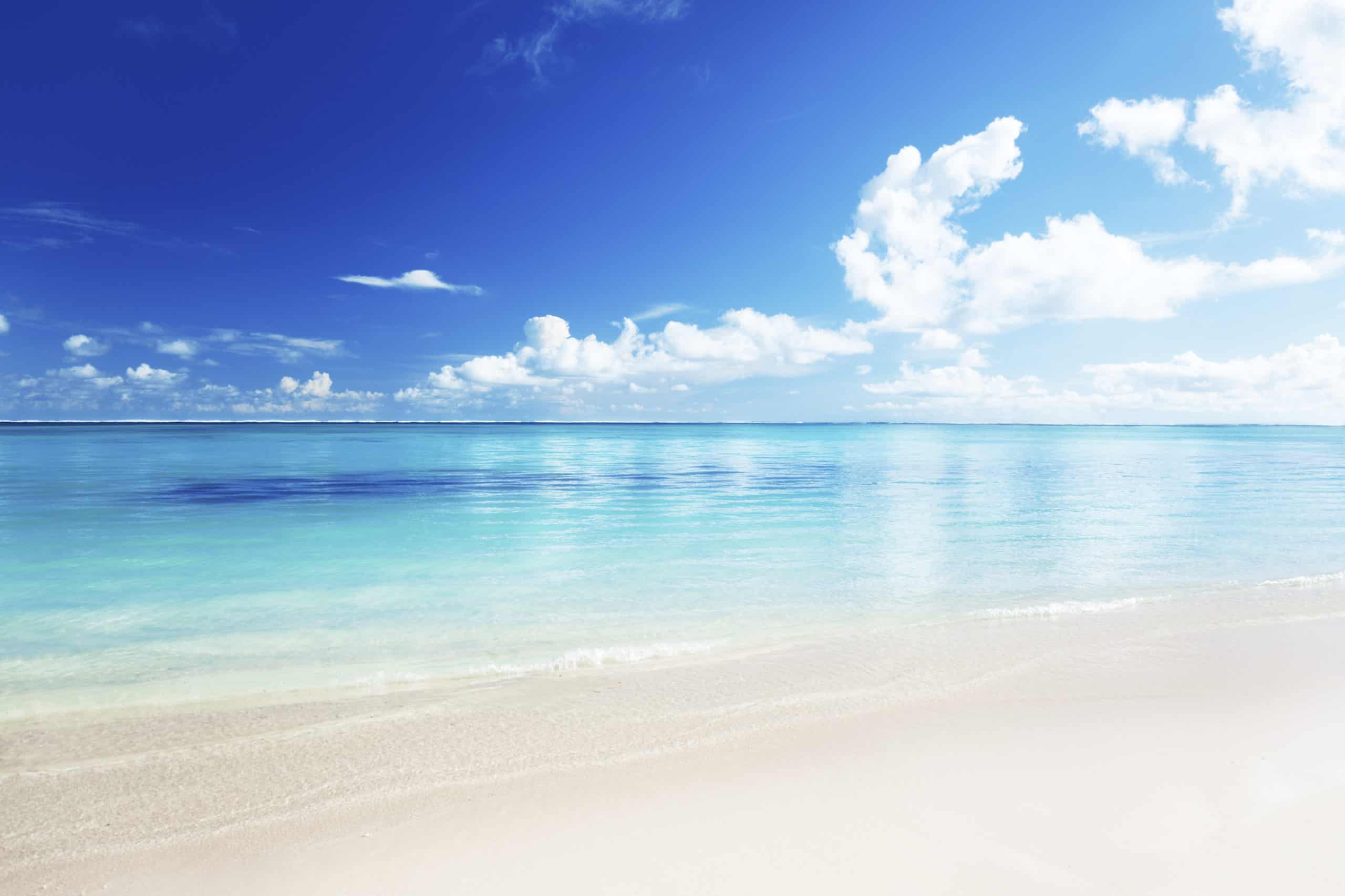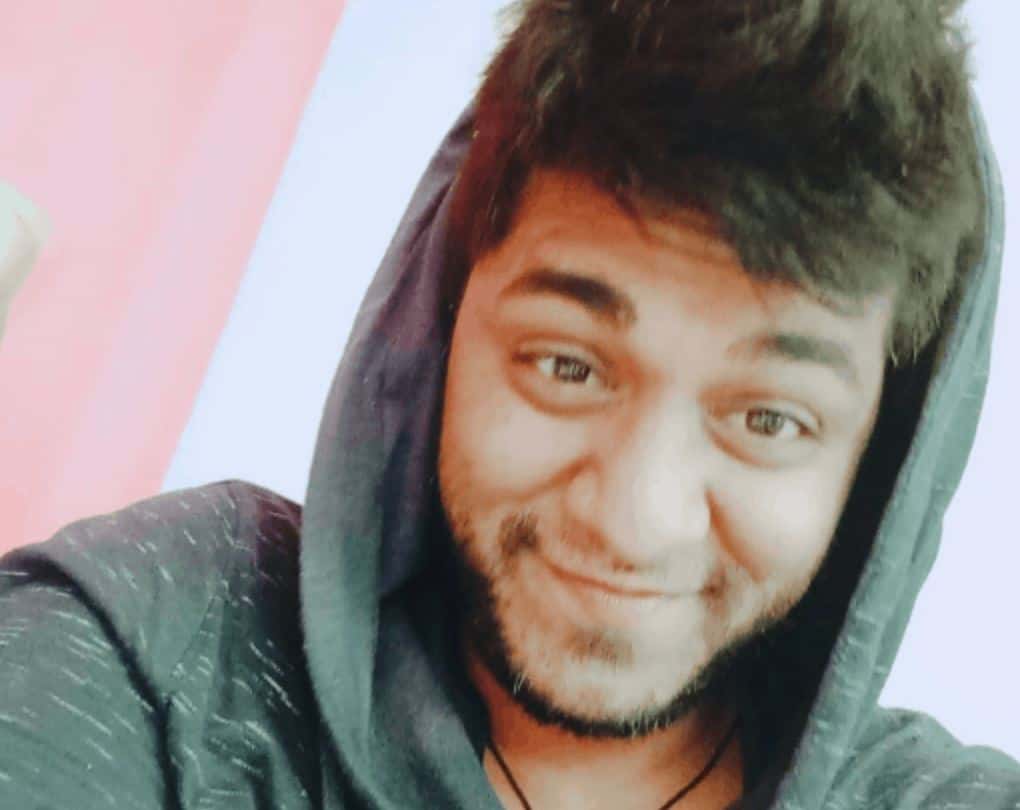
What's it like to be gay in Mauritius?
We spoke to one of Mauritius' foremost LGBT activist and Founder and President of Mauritius' Young Queer Alliance, Najeeb Ahmad Fokeerbux.
Mauritius is an island paradise in the Indian Ocean. It's a hugely popular honeymoon destination. When the Dutch "discovered" Mauritius, they thought they'd found the Garden of Eden. Along with the Maldives and Seychelles, it's known as one of the pearls of the Indian Ocean.
Although Mauritius is a major draw for luxury travelers, it's still technically illegal to be gay there, in accordance with a colonial-era law. We caught up with Najeeb Ahmad Fokeerbux, a Mauritian and founder of the Young Queer Alliance, to find out what it's really like to be gay in Mauritius.
What inspired you to start the Young Queer Alliance?
For many years there was an absence of queer activism in Mauritius. Yes, there was the symbolical annual Pride and we had some HIV programs for LGBT people. Some LGBT inclusive laws around employment were there due to progressive politicians. In 2014, I was 24 when I founded the YQA. Voices of young LGBT people like myself were often heard, but it was nonetheless a minority voice. We aspired for more than symbolic representation. We wanted to affirm ourselves, to be able to be accepted and to be able to be loved. The other reason behind the creation of the YQA was to show the support of LGBT people for legislation, such as the Equal Opportunities Commission to lift the blood donation ban towards homosexuals. This gave the much-needed impetus which enabled LGBT people to donate blood in Mauritius. Since then, Queer activism has evolved in the country and we have a seat at decision making tables.
Is Mauritius' colonial-era law against sodomy ever enforced?
Mauritius was first discovered by the Arabs, then came the Portuguese, and then the first colonisation was (1638 - 1710) by the Dutch (Mauritius is named after a Dutch prince: Prins Maurits van Nassaueiland). Subsequently, the Dutch left, then came the French (1715-1810) and the Treaty of Paris. The Island became a British colony (1810 - 1968) prior to obtaining independence. Section 250 of the Criminal Code Act of 1838 which criminalises homosexuality predates Independence. The law is a colonial one.
The law is used for divorce reasons among heterosexual couples. However, the existence of Section 250 violates the fundamental rights and freedom of LGBT people and is unconstitutional. Section 250 does not have its place in modern and democratic Mauritius in that LGBT people, like all other citizens, should have the fundamental rights to choice of sexual partner, privacy, dignity, protection of the law and equality. The law is contrary to the values of democracy and treats LBGT people as second-class citizens. Moreover, Mauritians believe in an equal society free from discrimination, and the continued existence of Section 250 brings about discrimination, inequality, stigma, and persecution of LGBT people. There are a number of constitutional challenges at the Supreme Court to this effect.
Mauritius was supposed to have a Gay Pride march in 2018. Why was it cancelled and is it likely to take place anytime soon?
The first Gay Pride was around 2005-2006 and has been happening for the past decade without much ado. Over the years, the population got used to flamboyant people marching in the streets of Rose-Hill or Port-Louis, despite the few minor incidents from counter-protesters each year - initially by Christians, followed by Muslims. 2018 was simply disastrous! A simple post on social media-fueled the hate between the anti-LGBT people and pro-LGBT / LGBT people. It was an emotionally vociferous encounter on social media that led to demonstrations on the streets. Whatever be the perspectives of this social encounter, for me it was two minorities affirming some identity crisis and a situation badly handled.
Mauritius is a multi-religious, multi-cultural, multi-ethnic country with a Hindu majority followed by Christians, Muslims, Chinese and others as smaller minorities. We are diverse. The different groups demand respect and recognition to conjugate the country "as one people, as one nation". An extremist group seized the opportunity in the hate-filled moment to counter-protest violently. Pride in 2018 was cancelled. However, in 2019, Pride resumed, though was cancelled again in 2021 due to coronavirus.

What do you love most about Mauritius?
I have been to a couple of other countries. Mauritius feels like home and it is always a pleasure and comforting when you see the blue seas and green lush when the plane is landing. What I love most is the safety, our social and cultural diversity, and the warmth of Mauritians. Mauritius is a wealthy microcosm of civilisation which can be found in few places around the world.
Are you optimistic about the future of gay rights in Mauritius?
The Young Queer Alliance has been around for 6 years. We have been part of initiating LGBT inclusion in the country: Blood donation, free hormonal treatment for trans people in public hospitals, United Nations advocacy, etc. Public administration has an attentive ear to our demands, embassies and foreign missions are advocating as well; with the EU being a strong supporter, and the population is more supportive. Change will happen in its time and the YQA will remain as an agent of change as well as a watchdog against the violations of the human rights of LGBT people.
What advice would you give to LGBT travelers planning a trip to Mauritius?
There are a number of LGBT inclusive hotels to chose from and travel agencies as well. Match the purpose of your trip with what can be offered. It can be vacation, experiencing the microcosm of cultures, wedding celebration/honeymoon, sea related activities - well, plan your trips accordingly.
Also, Mauritius is relatively safe for LGBT people. Assess your safety and level of comfort. For many years I have been with my partner and I have felt safe with public displays of affection.
What are the best reasons to visit Mauritius?
Mauritius is known as the "star and key of the Indian Ocean". Among the many features, you should come to enjoy the warmth of the people with diverse cultures (temples, festivals, music, local food and drinks, local market, artisanal activities, history, etc.), the sandy beaches, clear waters and the tropical sun. The water activities and nearby islets (do not forget Rodrigues Island) are a must and the different inland attractions and natural features such as the coloured earth, the botanical gardens, and the unique and rich flora and fauna.
The author Mark Twain rightly said: “Mauritius was made first, and then heaven; and that heaven was copied after Mauritius."
You can find out more about gay rights in Mauritius and the Young Queer Alliance. Read More in our Gay Mauritius Guide.
Join the Travel Gay Newsletter
More Gay Travel News, Interviews and Features
The Best Tours In Mauritius
Browse a selection of tours in Mauritius from our partners with free cancellation 24 hours before your tour starts.
